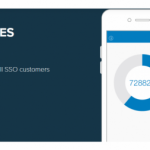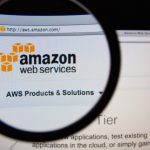Resilio Sync enables you to sync and share files without the cloud

There are many cloud-based synchronization services, including Dropbox, Google Drive, SugarSync and others. These services all use the same method of synchronizing your files. Choose the data you want across your computers and the content is uploaded to the cloud and then made available across your other devices.
The issue here can be if you don't have fast broadband, making uploading huge files problematic. The answer is a peer-to-peer service where your data remains on one device whilst it’s synchronized to others, whether you own these devices or they are authorized users.
Box offers cloud services to London Metropolitan Police
How to fight back against the email scammers
Business Email Compromise (BEC) has become one of the most popular tactics deployed by fraudsters in recent years. A step up from the numerous but low-quality spam campaigns that clog most inboxes on a daily basis, BEC attacks involve a planned attack on a specific target, aided by the impersonation of a trusted contact.
The most commonly seen tactic is to take on the guise of the CEO and use their authority to trick a financial department into transferring funds, while variations include impersonating suppliers and business partners, and going after sensitive data rather than direct payment. In its most recent report, the FBI estimated that financial losses from these attacks is more than $5.3bn since October 2013.
How to deal with immediate cyber threats

As the threat of invading malware increases (viruses, worms, Trojans, bots, just to name a few), companies, small and large, will continue to use technology as a means of defence. The antivirus industry is extremely large and continues to garner major investment. As with any technology niche, there is both good and bad within what’s called advanced endpoint security, but it will continue to be installed as a means to protect against modern malware and other possible threats.
It is interesting to me that the term virus has become the way most people understand how computers or enterprise systems become infected. I think it is because people understand the flu and the common cold. And they generally understand how to protect against catching the flu or catching a cold. The most important protection is information.
How Internet of Things supports smart cities

Global analyst firm Gartner has predicted that by 2020 there will be more than 20 billion "things" connected to the Internet, sending data all over the world. These Internet of Things (IoT) devices could be anything from fish tanks and fidget spinners, to sunglasses, fridges and other home appliances. All these devices have the ability to send and receive data between one another, creating a network that can share valuable information.
When such devices are integrated into the infrastructure of our towns and cities, they have the potential to revolutionize the way we live our lives -- making our cities more accessible, safer and easier to navigate. For fleet and operations managers in particular, this presents a very enticing opportunity.
Huawei looks to forge global cloud computing alliances
HPE offloads software division to Micro Focus

HPE has finalized the sale of its software division, bringing to an end one of the company's most traumatic periods.
The technology giant has confirmed the spin off of its software business in a deal with British firm Micro Focus which is valued at around $8.8 billion.
Microsoft at the forefront of enterprise SaaS market

Enterprise SaaS market has seen growth of almost a third (31 percent) compared to last year.
That's according to the latest research from Synergy Research Group.
Juniper buys security startup Cyphort

Juniper Networks has announced plans to acquire security analytics software firm Cyphort.
By acquiring Cyphort, Juniper will have access to its open-architecture platform that features a machine learning powered analytics engine that is capable of integrating with existing security tools to aid companies in detecting threats that have been missed by their first-line of security.
Lenovo's new ThinkPad A laptops come with AMD Ryzen Pro chips

Lenovo has revealed details of an all-new build of its enterprise-focused ThinkPad notebook products.
Scheduled to mark the 25th anniversary of its iconic ThinkPad line, the two new A-series products will be the first notebooks to feature AMD hardware. Specifically, this means the chipmaker's all-new Ryzen Pro processors, which were shown off at an event in New York this week.
AMD wants to conquer the enterprise PC market with Ryzen Pro

AMD has laid out its aim to make workplace PC and laptop devices more powerful thanks to its latest Ryzen Pro chips.
The company has unveiled the first enterprise computing devices that will feature its latest hardware, with the world's three biggest PC manufacturers all signed up for new releases.
Okta adds two-factor authentication

Okta has recently made three major announcements. First, it introduced new developer product toolkit capabilities, allowing developers to add Okta’s identity-driven security solution to their own applications with ease.
This has been announced during Oktane, its user event in Las Vegas. New features include easy and secure authentication, rapid customization and branding, out-of-the-box workflows, as well as securing APIs that are exposed to third-party developers.
What you need to know about AWS RDS

Traditional systems administration of servers, applications, and databases used to be a little simpler when it came to choices and costs. For a long time, there was no other choice than to hook up a physical server, put on your desired OS, and install the database or application software that you needed. Eventually, you could choose to install your OS on a physical server or on a virtual machine running on a hypervisor. Then, large companies started running their own hypervisor and allowed you to rent your VM for as long as you needed it on their servers.
In 2009, Amazon started offering the ability to rent databases directly, without having to worry about the underlying OS in a platform as a service (PaaS) offering called Relational Database Service (RDS). This added another layer of complexity to your choices when managing your infrastructure. Let’s explore AWS RDS pricing a little bit, and examine some of the features that comes with it.
Oracle upgrades Internet of Things service with artificial intelligence and machine learning

Oracle has revealed a major upgrade to its IoT cloud offering that it says will help businesses get more value out of the platform.
The company has revealed it will be imbuing its IoT Cloud with built-in artificial intelligence and machine learning capabilities which will be able to provide businesses with more detailed data than ever before.
Where can blockchain add value?

Blockchains and their use cases have evolved significantly since the advent of cryptocurrencies such as Bitcoin and Ethereum. And for a few good reasons. The fully decentralized system lowers transaction costs, improves record-keeping and enables complete transactional traceability. These benefits make blockchains ideally suited for the hyperconnected digital era -- one in which trust boundaries between devices, networks, applications and users are being constantly redefined.
But what makes blockchains credible? A blockchain’s network participants are bound by certain rules, which are continuously validated by peers. Several built-in mechanisms, including proof-of-work, proof-of-stake and consensus-based decisions ensure trust is maintained and strengthened. The transaction ledger is open to participants for analysis and auditing purposes at any time, with data being replicated across multiple participants. Blockchains eliminate the need for a central or federated trusted entity -- the middleman -- which results in the democratization of trust. This is why blockchain has been dubbed the Trust Machine.
BetaNews, your source for breaking tech news, reviews, and in-depth reporting since 1998.
© 1998-2025 BetaNews, Inc. All Rights Reserved. About Us - Privacy Policy - Cookie Policy - Sitemap.


